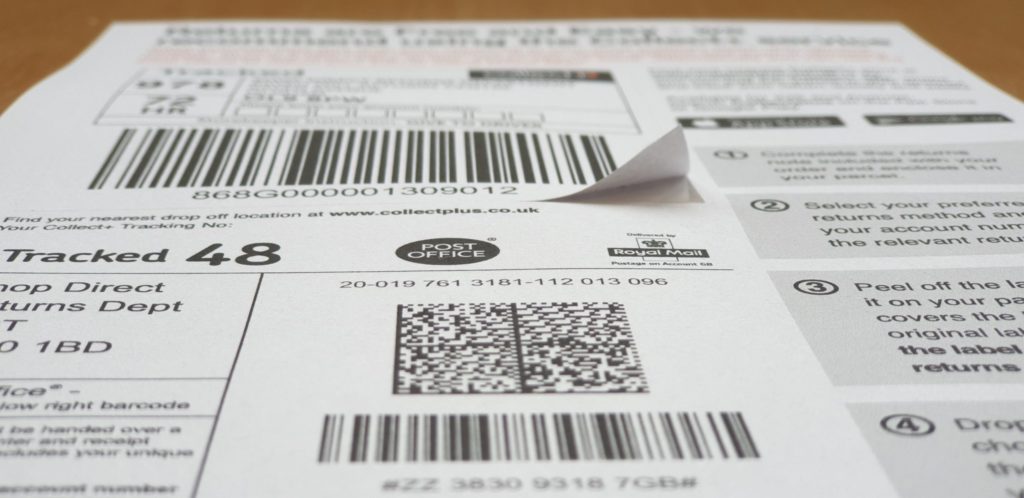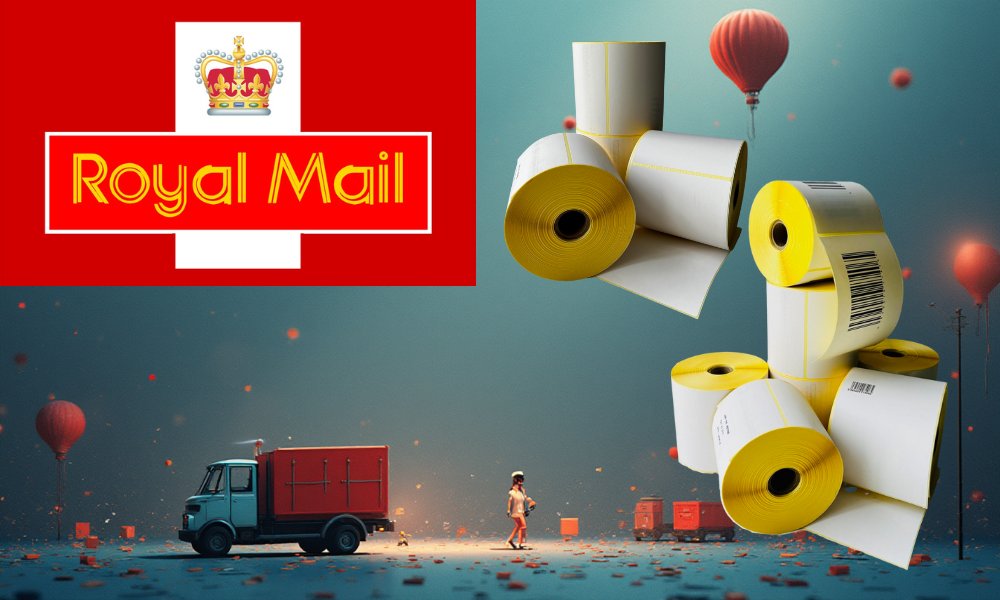At Labels Zoo, we specialize in high-quality barcode labels. This guide provides expert-backed insights on printing barcodes at home, along with best practices recommended by industry leaders.
Barcode labels are one of the most important ways to identify your products, assets, or employees. You can use them for inventory tracking, identifying products and more. They’re used in manufacturing industries, retail businesses, stockrooms and many other industries, varying across most sectors.
Since their introduction in the 1970s, barcodes have transformed global commerce and supply chains. According to a GS1 study, companies that implement barcode tracking see an average 30% reduction in inventory errors and a 20% boost in operational efficiency
What are barcodes and why are they useful?
Barcodes are machine-readable representations of data, consisting of black-and-white patterns. Each barcode encodes information in a way that scanners can read, using light reflection to detect variations between dark and light spaces. The scanned data is then converted into a numerical or alphanumeric code, which corresponds to product details stored in a database
The barcode acts as a quick reference tool for the cashier or worker to scan to identify the description and cost of an item with ease.
While retail is a major industry for barcodes, they are also crucial in logistics, healthcare, and manufacturing. In warehouses, barcodes track shipments, reduce errors, and automate inventory management. In hospitals, barcode wristbands help prevent medication errors by ensuring patients receive the correct prescriptions. According to GS1’s industry reports, barcode technology has improved efficiency across global supply chains by reducing manual data entry errors.
Barcodes are a great way to track inventory and keep track of the goods you sell, or the goods that your company needs. They’re also used in many other industries where it is important to keep track of items being sold, including retail stores, grocery stores and even manufacturing companies. Barcodes allow for easy scanning by employees when entering new inventory into their databases.
Barcodes follow international standards set by GS1, the global authority on barcode creation and scanning. GS1 recommends a minimum resolution of 300 DPI for barcode clarity. Additionally, Zebra Technologies suggests using thermal printing for long-term barcode durability in retail and warehouse environments.
Types of barcodes
Not all barcodes serve the same purpose. GS1’s Barcode Types Guide explains different barcode formats and their uses:
- UPC-A – Used in retail for scanning at checkout.
- EAN-13 – Common in Europe for consumer products.
- Code 128 – Ideal for internal inventory tracking, as it stores more information.
- QR Codes – Used for digital interactions, like linking to websites or product details.
For at-home printing, UPC and Code 128 barcodes are the most commonly used formats
What label adhesive should I use for a barcode label?
While you can use a wide variety of adhesives or sticky labels as barcode labels, certain types will work better than others. For short-term barcodes used on products with a short shelf life, matt white paper labels work well. However, for long-lasting labels, such as those used in warehouses or shipping, consider using thermal transfer labels made of polypropylene or polyester.
These materials resist moisture, chemicals, and wear. We also recommend synthetic labels for industrial applications where durability is required.
Due to barcode readers relying on the ability to scan the barcode to gather the information, it is important the label can be read clearly and quickly for efficiency. Barcode readers detect the difference between white and black printed areas on the label to gather the right information.
Therefore, the label needs to be matt to avoid any shiny surface reflecting light and interfering with the barcode detection which can prevent accurate results. Permanent adhesive is the ideal solution for barcode labels to keep them secured on the relevant items.

What type of label should I use for a barcode label?
When it comes to which type of label you want for your barcodes, you need something simple, matt, white and the right shape and size for a barcode. Printer labels and direct thermal labels are both great for barcodes, however, if you’re printing them at home, printer labels are the best option due to their compatibility with inkjet and laser printers.
Manufactured using high-quality 70gsm paper with a permanent adhesive backing, printer labels are perfect for barcodes to be printed off at home. The permanent adhesive will keep them stuck to the product and avoid any stock with missing barcodes, and you’re able to order them in different sizes to customise how many barcodes you need.
For barcodes that need to withstand warehouse conditions or frequent handling, consider using polypropylene or polyester labels instead of standard paper labels. Research from Zebra Technologies highlights that thermal transfer printing on synthetic labels can make barcodes last longer and resist fading.
What print settings should I use for barcode labels?
When printing barcode labels, you must consider the print settings as you need the best quality result possible so that the barcode reader can get accurate and quick results. Therefore, selecting a “Labels” or “Heavy Paper” print setting is the best solution for ensuring a quality print finish.
To ensure scanning accuracy, always print your barcodes in high contrast (black on white) and set your printer to at least 300 DPI resolution to avoid blurry barcodes. Higher resolution (e.g., 600 DPI) is ideal for small barcodes or complex codes like QR codes.
Antonette Tagnipez from BoxHero also recommends reducing your printing speed, as printing too quickly can result in distorted barcodes. Low-resolution barcode printing can cause errors in inventory management and POS systems, making it important to retain quality wherever possible.
What should I consider when choosing labels for my barcodes?
1. The colour of the labels needs to be white so the barcode reader can get accurate results.
2. Use a matt finish so the gloss does not reflect light.
3. A permanent or high-tack adhesive will prevent your products from losing their assigned barcode.
4. Printer labels are compatible with inkjet and laser printers, which are most common from at-home printers.
5. Print barcodes with the highest quality settings available to get the best results from the barcode reader.
6. While label sheets allow for flexible printing of small quantities, roll label printers often require full rolls to be used efficiently. If using a desktop inkjet or laser printer, opt for A4 label sheets with a layout matching your software settings.
Are you in need of barcode labels?
Having barcode labels available to print at home or on-site is extremely efficient and beneficial. At Labels Zoo, we’ve helped thousands of businesses print durable, high-quality barcode labels.
If you’re looking for high-quality barcode labels tailored for inkjet, laser, and thermal printing, explore our barcode label collection or contact us for expert guidance on selecting the right label for your needs.
We have a 4.8 star rating from 612 customer reviews – we help businesses to cut costs whilst providing high-quality label solutions.
About the Author: This article was written by Tom Lamb, a labelling specialist at Labels Zoo with over 20 years of experience in label manufacturing and printing solutions. Our team stays up to date with GS1 barcode standards and best practices from industry leaders
As of 19 January 2026, Royal Mail has officially stopped supplying 4×6 thermal shipping labels to customers for their shipping requirements. This change has affected thousands of UK businesses, particularly eCommerce sellers, fulfilment centres, and high-volume Royal Mail customers who rely on 4×6 thermal labels for daily dispatch. If you…
12/01/2026
How to Print WhatNot Shipping Labels
Selling on WhatNot is fast-paced, live, and community-driven – but once the stream ends, smooth shipping is what keeps buyers happy and reviews high. In this guide, we’ll walk through exactly how to print WhatNot shipping labels, which printer and label formats to choose, and what happens after your orders…
01/01/2026
What Makes Thermal Printing Different
From shipping operations to stock control, clear labelling is what keeps products moving efficiently through a business. It ensures items are stored in the right place, picked accurately, packed correctly and delivered to the right destination. In many ways, labels are the quiet organisers of every supply chain, essential to…






